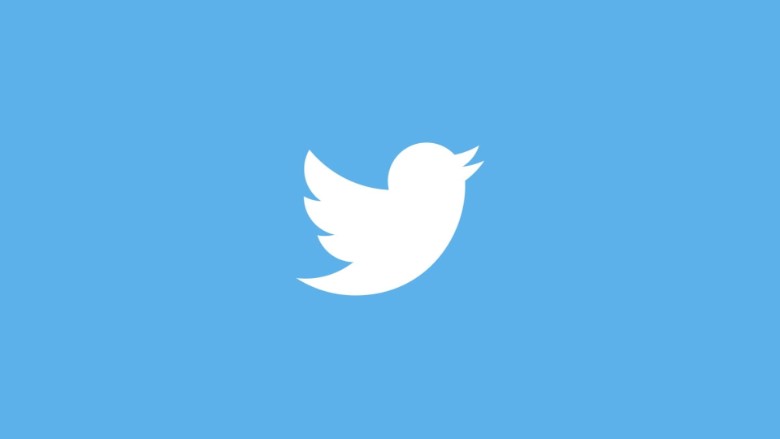
Nearly 20,000 anti-Semitic tweets have been directed at more than 800 journalists since the 2016 presidential campaign began, often because those journalists voiced critical opinions about Donald Trump, the Anti-Defamation League said Wednesday.
The anti-Semitic Twitter attacks, which have increased as the campaign has gone on, represent what the ADL describes in a new report as a "disturbing" and "execrable" trend.
"There is evidence that a considerable number of the anti-Semitic tweets targeting journalists originate with people identifying themselves as Trump supporters, 'conservatives' or extreme right-wing elements," the ADL report states.
While the ADL is careful to note that Trump did not support these tweets, the group says he "may have contributed to an environment in which reporters were targeted" because of his anti-media rhetoric, which has included labeling reporters "absolute scum" and saying that while he did not want to kill reporters, he did "hate them."
The ADL says it found 2.6 million tweets "containing language frequently found in anti-Semitic speech" between August 2015 and July 2016. 19,253 of those tweets were directed at American journalists, the ADL found; the top 10 most targeted journalists (all of whom are Jewish) received 83 percent of them.
Julia Ioffe, a Washington-based journalist, received tweets that referred to her using slurs and said "Back to the Ovens!" after she wrote a profile of Melania Trump for GQ.
Jonathan Weisman, an editor at The New York Times, was sent images of ovens and of himself wearing Nazi "Juden" stars after tweeting about casino magnate Sheldon Adelson's support for Trump, and after making note of the responses to Ioffe's article.
Hadas Gold, a reporter at Politico, recently received an image of herself wearing a Nazi "Juden" star with a bullet hole in her head because she had been critical of Trump.
"Anti-Semitism has a long history," Gold told CNNMoney, "but this election has brought about a rise in fear of the 'other' and despite being a vital part of American history for hundreds of years, Jews are often still seen as the other."
Journalists and news organizations have wrestled with how to respond to such attacks.
In an interview with CNNMoney, Weisman said his initial response was to retweet the attacks in order to call attention to them. "I went through a terrible 24-hour binge where anything that came I retweeted," he said. "It was like kicking a hornet's nest, because people would tweet at me because they knew I'd retweet it."
"My goal was to show that this was out there, this was happening," Weisman said, "but I was aware at the same time that I was doing their bidding. There's no question that by creating a record of it, I spread awareness of alt-right anti-Semitism."
In a similar effort to highlight the vitriol, Ioffe tweeted out the image of Gold, but eventually took it down "out of respect for Hadas," she said in a tweet.
The spike in anti-Semitic tweets has led to criticism of Twitter, a company trying to maintain a free and open social platform even as its policy states that users "may not promote violence against or directly attack or threaten other people on the basis of race, ethnicity, national origin, sexual orientation, gender, gender identity, religious affiliation, age, disability, or disease."
Asked to comment on the ADL's report, a Twitter spokesperson said the company would be introducing new safety improvements in the weeks ahead.
"Hateful conduct has no place on Twitter and we address this issue every day with government, our partners in civil society and our peers in the technology sector," the spokesperson said. "People must feel safe in order to speak freely and there is a clear distinction between freedom of expression and conduct that incites violence and hate. We continue to invest heavily in our safety policies and tools, and we will roll out additional improvements to both in the coming weeks."
As Weisman sees it, Twitter's decision to grant anonymity makes it impossible for them to enforce their rules. As soon as the company shuts down one account, that user can launch another one. "It's like whack-a-mole," he said.
For that reason, Weisman also speculated that many of these anti-Semitic tweets might be coming from individuals with multiple accounts. But he remains shocked and troubled by the vitriol nevertheless.
"I am troubled by the uptick of hate in this country writ large," he said. "I would not be so bold as to say that anti-Semitism on Twitter is the worst of it. I would say Muslims being beat up in the street, Hispanics being ostracized at school -- those are far worse."
"This is just a single manifestation of growing hate and bullying in this country," he said.
Correction: This article originally said that the ADL had found 2.6 million anti-Semitic tweets directed at journalists. In fact, it found 2.6 million anti-Semitic tweets in all, 19,253 of which were directed at journalists.


